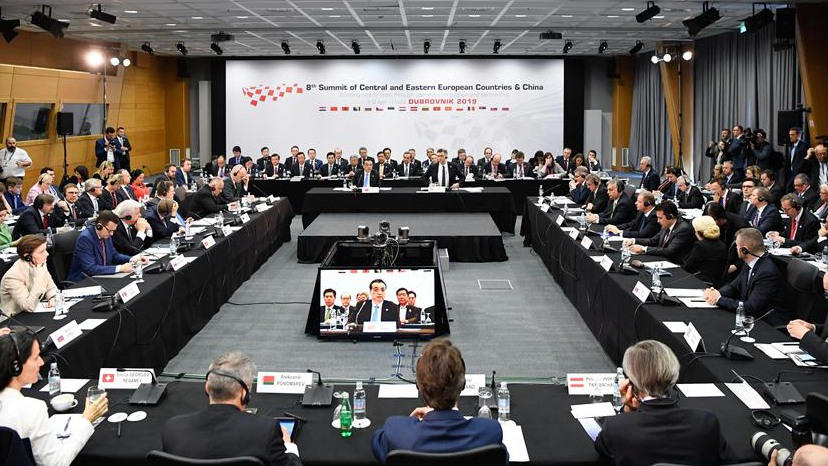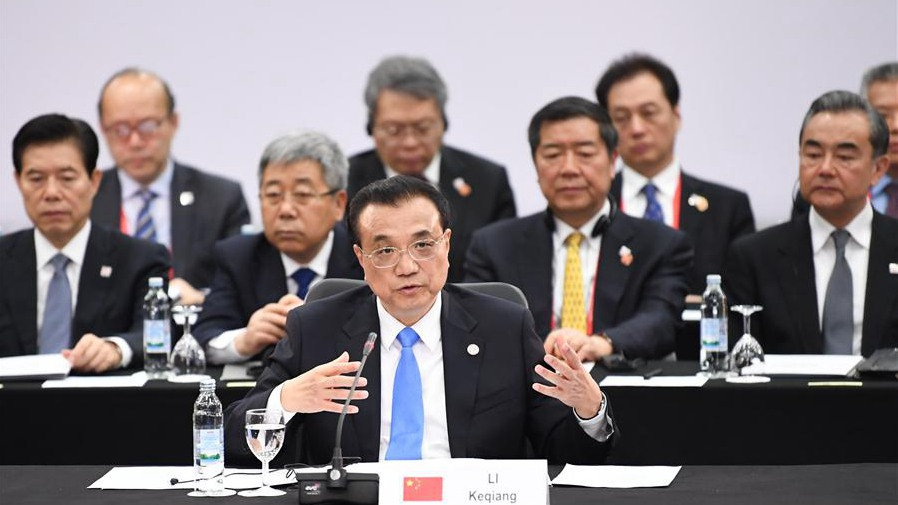
Opinion
18:39, 14-Apr-2019
Respect and trust needed to forge strong China-EU ties
Wang Li

Editor's note: Wang Li is a professor at Jilin University. The article reflects the author's opinion, and not necessarily the views of CGTN.
Chinese Premier Li Keqiang has wrapped up his Europe tour where he attended the 21st China-EU Leaders' Meeting as well as the 8th Leaders' Meeting of China and the Central and Eastern European Countries (CEEC), and paid a state visit to Croatia.
Given EU's confidence in its bilateral partnership with China and the CEEC's expansion from 16+1 to 17+1 due to Greece joining the project on April 12, there are ample reasons to believe that strong ties between China and the EU will continue to serve as a bridge between the East and the West and beyond.
At the political level, China has enjoyed formal diplomatic relations with all EU member states. Now with Greece on board, all the 17 CEEC have signed the Belt and Road Initiative (BRI) cooperation agreements with China. Europe appreciates China's huge economic and political impact both regionally and globally. Given the re-emergence of China as a great power on the world stage, the union hopes to see its cooperation with China serve both sides' interests.
In the 2005 joint statement of the China-EU summit, leaders of the two sides reviewed the process in bilateral relations over the years, “which is fast maturing into a comprehensive strategic partnership.” On March 18, 2019, in the High-level Strategic Dialogue between China and the EU, the two sides agreed that the bilateral cooperation far outweighs competition, and that consensus, rather than divergences, underpins bilateral relations.

Chinese Premier Li Keqiang (front) attends the eighth leaders' meeting of China and Central and Eastern European Countries in Dubrovnik, Croatia, April 12, 2019. /Xinhua Photo
Chinese Premier Li Keqiang (front) attends the eighth leaders' meeting of China and Central and Eastern European Countries in Dubrovnik, Croatia, April 12, 2019. /Xinhua Photo
Accordingly, their strategic consensus includes 10 areas where both sides vow to support multilateralism and oppose unilateralism, support the United Nations (UN) in playing a leading role in international affairs, and safeguard the basic norms of international relations based on the purposes of the UN Charter, along with the implementation of the 2030 Agenda for Sustainable Development.
Equally, at the economic level, the EU has been China's top trading partner for the past 15 years, while China has been EU's second largest trading partner for years running.
According to 2018 statistics from China, two-way trade between China and Europe as a whole and between China and the EU reached 733.8 billion U.S. dollars and 682.2 billion U.S. dollars, respectively. It means the trading volumes between the two sides surpassed one million U.S. dollars every minute on average.
Moreover, since China and the EU are actual and aspiring economic powerhouses, both sides have agreed to work with each other on a range of issues across regions, such as climate change, technology transfer, and cooperation in third-countries, Iran nuclear deal and anti-terrorism globally.
For sure, due to both historical reasons and pressure from Washington, a sense of “China threat” is still prevalent in Europe. Some argue that cooperation between CEEC and China is directed by Beijing for “dividing” the EU and then “conquering” it.
However, this is rather ridiculous. Historically, China has supported the European integration in the hope of a peaceful and prosperous Europe. Geopolitically, Beijing understands that the CEEC are the core concern of Brussels. Therefore, China never intends to compete with the EU for influence in the sub-region.
Fully aware of this dilemma, Beijing has reiterated that China is willing to work with the EU to safeguard multilateralism and promote free trade through the UN, the WTO, the IMF, the World Bank, etc.
In order to promote China-Europe relations, both sides also need to strengthen mutual respect and trust. As Chinese President Xi Jinping once said at the seminar on global governance in Paris, trust is the “glue” for maintaining good relations among and between nations.
(If you want to contribute and have specific expertise, please contact us at opinions@cgtn.com.)

SITEMAP
Copyright © 2018 CGTN. Beijing ICP prepared NO.16065310-3
Copyright © 2018 CGTN. Beijing ICP prepared NO.16065310-3